The Caspian Policy Center Hosts its 3rd Trans-Caspian Connectivity Conference in London
Recent Articles
Author: Caspian Policy Center
07/05/2025
London, UK, July 2, 2025 —Focusing on the theme, Harnessing the Momentum, Building on the Synergies, the Caspian Policy Center (CPC) hosted its third London Conference on Trans-Caspian Connectivity at Arundel House in Temple Place, London. The event brought together key stakeholders from the United Kingdom and the Caspian Region to discuss and strategize how to enhance connectivity and trade across the Middle Corridor, which connects countries in the Caucasus and Central Asia to Europe, China, and South Asia.
The packed event featured senior economic, finance, and development experts from the United Kingdom and from countries across the European Union (EU), as well as the Caspian region who discussed policy objectives and practical efforts for enhancing connectivity along the Middle Corridor that stretches across the Caucasus and Central Asia. Also speaking were senior experts from international organizations, financial institutions, and private-sector representatives who suggested ways to prioritize investments in the region and how to improve the regional business climate.
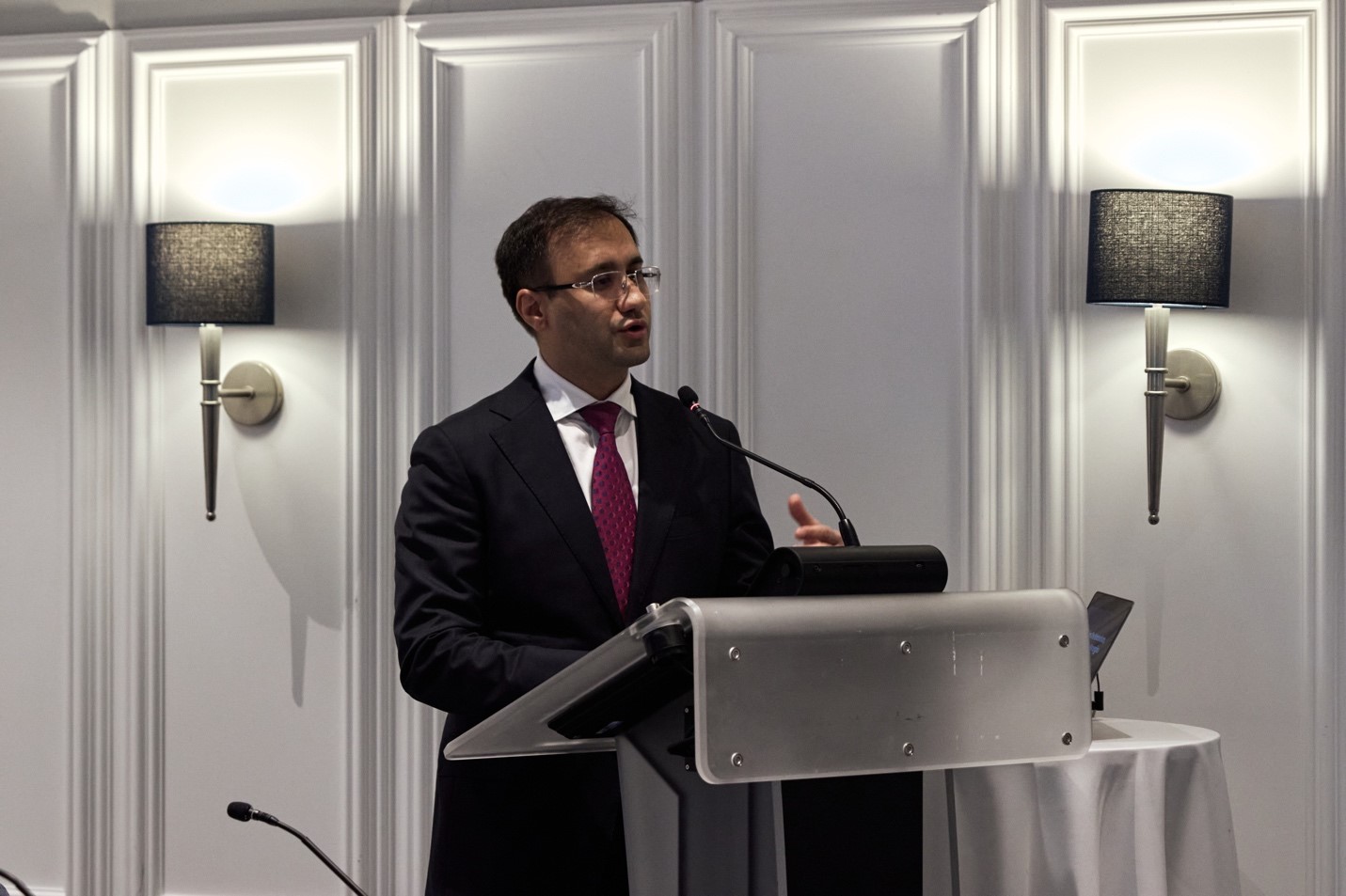
Efgan Nifti, President of the CPC, welcomed participants and guests to CPC’s third connectivity conference in London, and thanked the International Institute for Strategic Studies for the use of their venue. Nifti noted that connection and cooperation within the Caspian region are increasing, highlighting the recent uptick in visits to the region by representatives from the European Union, China, India, and other countries, using the C5+1 format.
The CPC President also emphasized the increased cooperation witnessed within the Caspian region. Drawing upon the CPC team’s recent visits to the region, Nifti said, “It’s a pleasure to see that regional connectivity is becoming more important, as Trans-Caspian countries look for more diversified economic and political relations, trying to reach each other as well as working to gain access to global markets.”
Speaking about the Middle Corridor, Nifti highlighted that cargo traffic along the Trans-Caspian International Transport Route increased by 62 percent in the last year alone. “Obviously, there are challenges remaining in terms of bottlenecks, ship capacity, and software, but we have seen huge coordination in this regard that is helping to boost the potential of the Corridor,” he added.
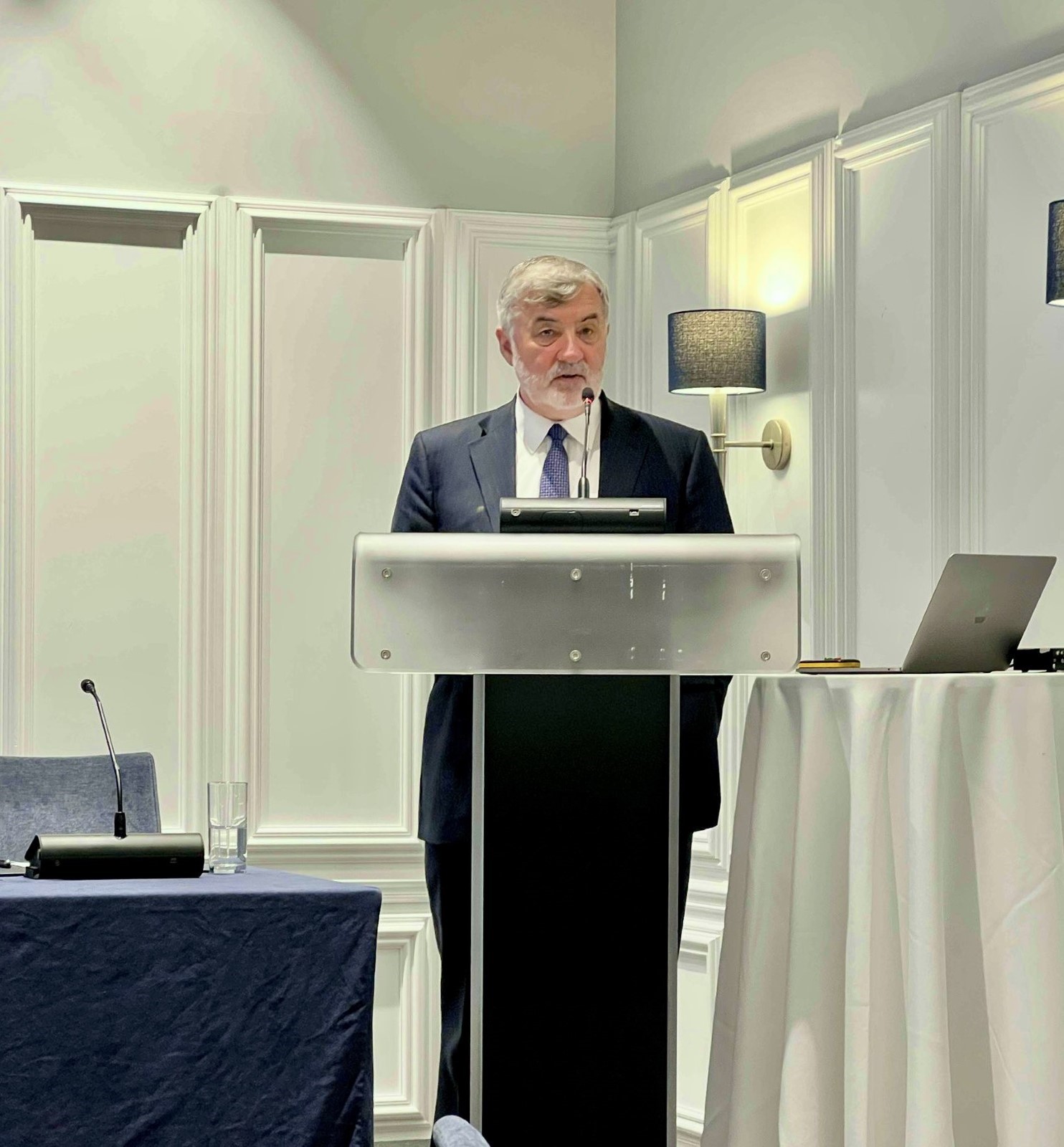
Lord John Alderdice, UK Trade Envoy to Azerbaijan and Central Asia, delivered the keynote remarks, highlighting that the UK Prime Minister’s decision to expand his remit as trade envoy to cover all five Central Asian countries and Azerbaijan reflects the UK’s deepening commitment to the region. “I can already see enormous opportunities for commercial and other partnerships in each of these markets, whether it’s renewable energy, financial and professional services, critical minerals, aerospace, education, or the creative industries,” noted Alderdice. He emphasized that if we want to unlock the true potential of these partnerships, we must improve connectivity, both within the region and further afield.
Lord Alderdice specifically mentioned that a very significant portion of the UK’s exports to Central Asia now transit through the Middle Corridor. To unlock the corridor’s full potential, huge investments in both hard and soft infrastructure are required. Lord Alderdice noted the priority areas for the UK government’s activities in partnering with the region. “In Georgia and Kazakhstan, upgrading ports and rail capacity is a primary focus; in Azerbaijan, we’re working together with Türkiye as partners to support the development of regional clean-energy corridors,” he emphasized.
Additionally, Lord Alderdice noted that UKEF and UK banks are actively backing major connectivity projects across the region. “I think we’ve also played a useful, maybe even important role in helping Kazakhstan, Kyrgyzstan, and Uzbekistan raise an astonishing $10 billion of capital through sovereign bonds on the London Stock Exchange in the last year, which provides the means to invest in connectivity projects,” he added.
Alderdice concluded his remarks by stating that “improving connectivity in the region, whether through hard infrastructure, digital systems, or people to people, requires all of us to work together.”
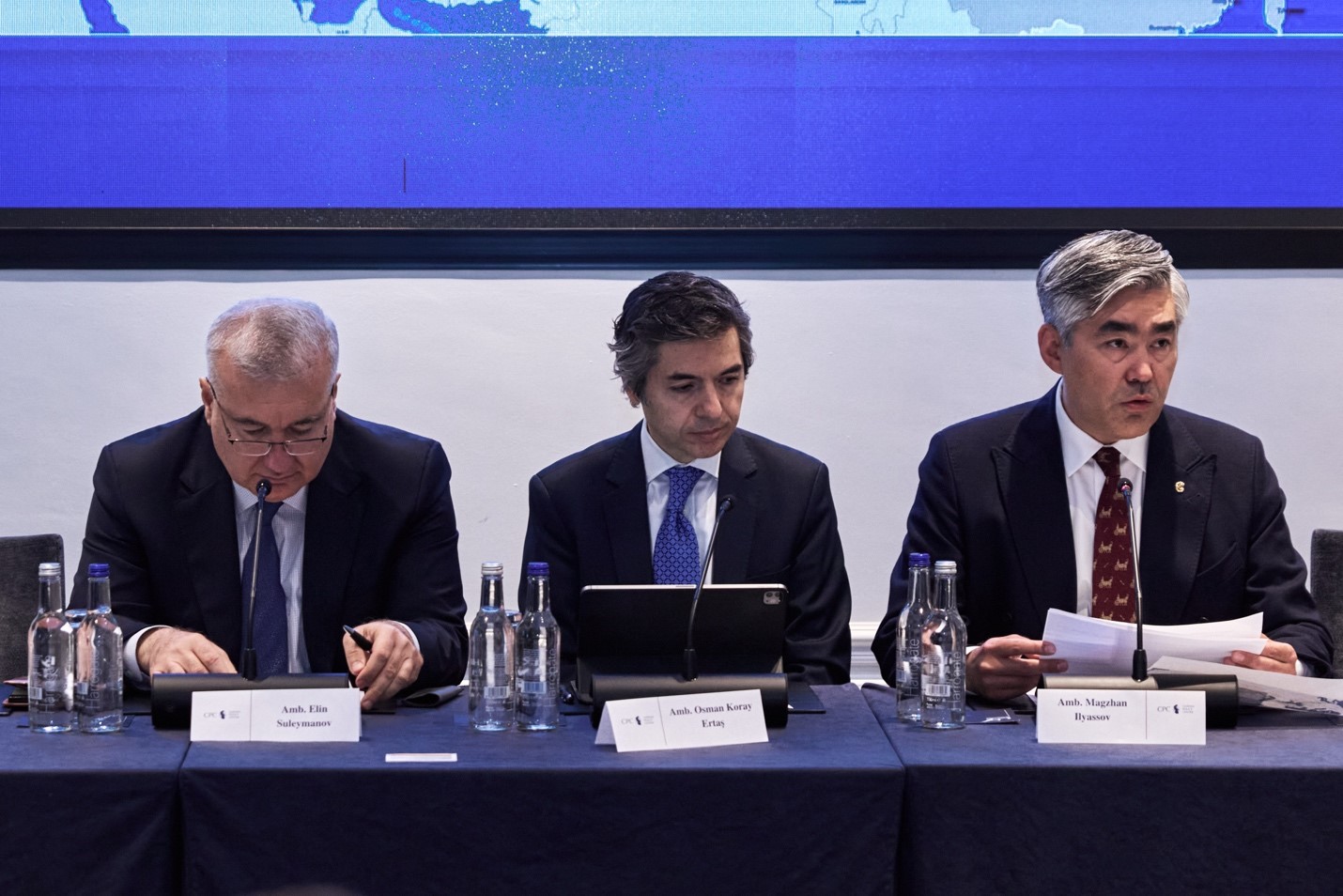
Following Lord Alderdice’s keynote address, CPC’s UK advisor David Moran introduced the first ambassadorial panel, which included remarks from the Ambassadors of Azerbaijan, Kazakhstan, and Türkiye to the UK.
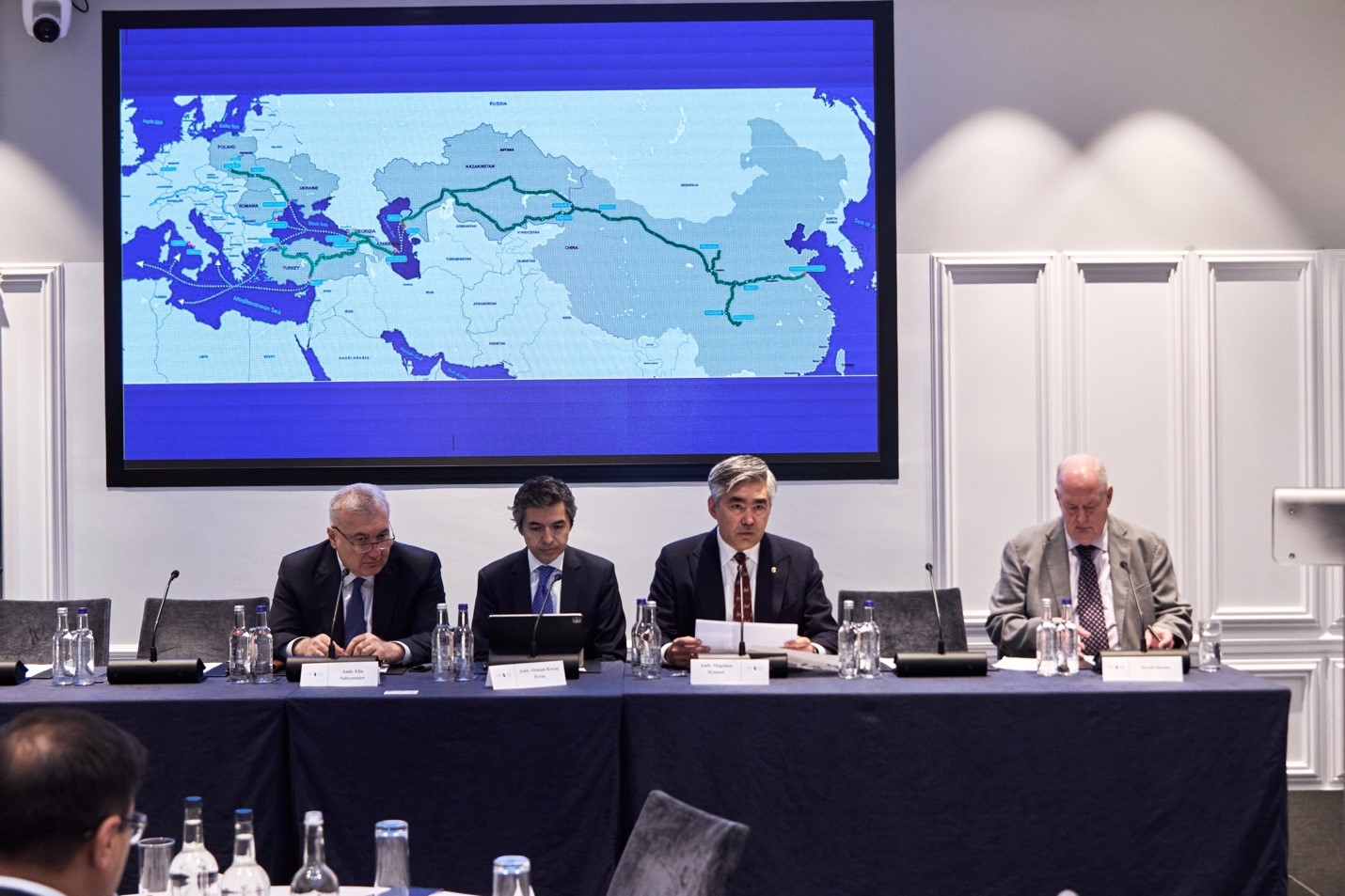
Commenting on the increased importance of the Middle Corridor, Ambassador of Kazakhstan to the UK Magzhan Ilyassov said that currently there is a lot of appetite and interest in the UK to understand what is the Middle Corridor, especially as we all witness global uncertainty becoming the new norm. “Regional conflicts, supply chain disruptions, and escalating trade wars are fundamentally reshaping the global landscape. In this context, the development of reliable, stable, and efficient trade corridors has become strategically essential for ensuring economic resilience and sustainable growth,” Ilyassov noted.
With Kazakhstan’s strategic location at the heart of the Trans-Caspian Corridor, Ambassador Ilyassov noted the following developments: “In the past 15 years, Kazakhstan has invested around $35 billion in its transport infrastructure, significantly boosting transit capacity. In 2025 alone, we plan to modernize over 13,000 kilometers of roads, upgrade over 6,000 kilometers of railways, and expand six airports. Maritime infrastructure upgrades at our Caspian ports of Aktau and Kuryk are progressing with new ferry capabilities to accommodate growing volumes of cargo.” Ilyassov added that Kazakhstan’s goal is to handle 5.2 million tons of cargo in 2025, which is a significant increase from 4.5 million tons in 2024.
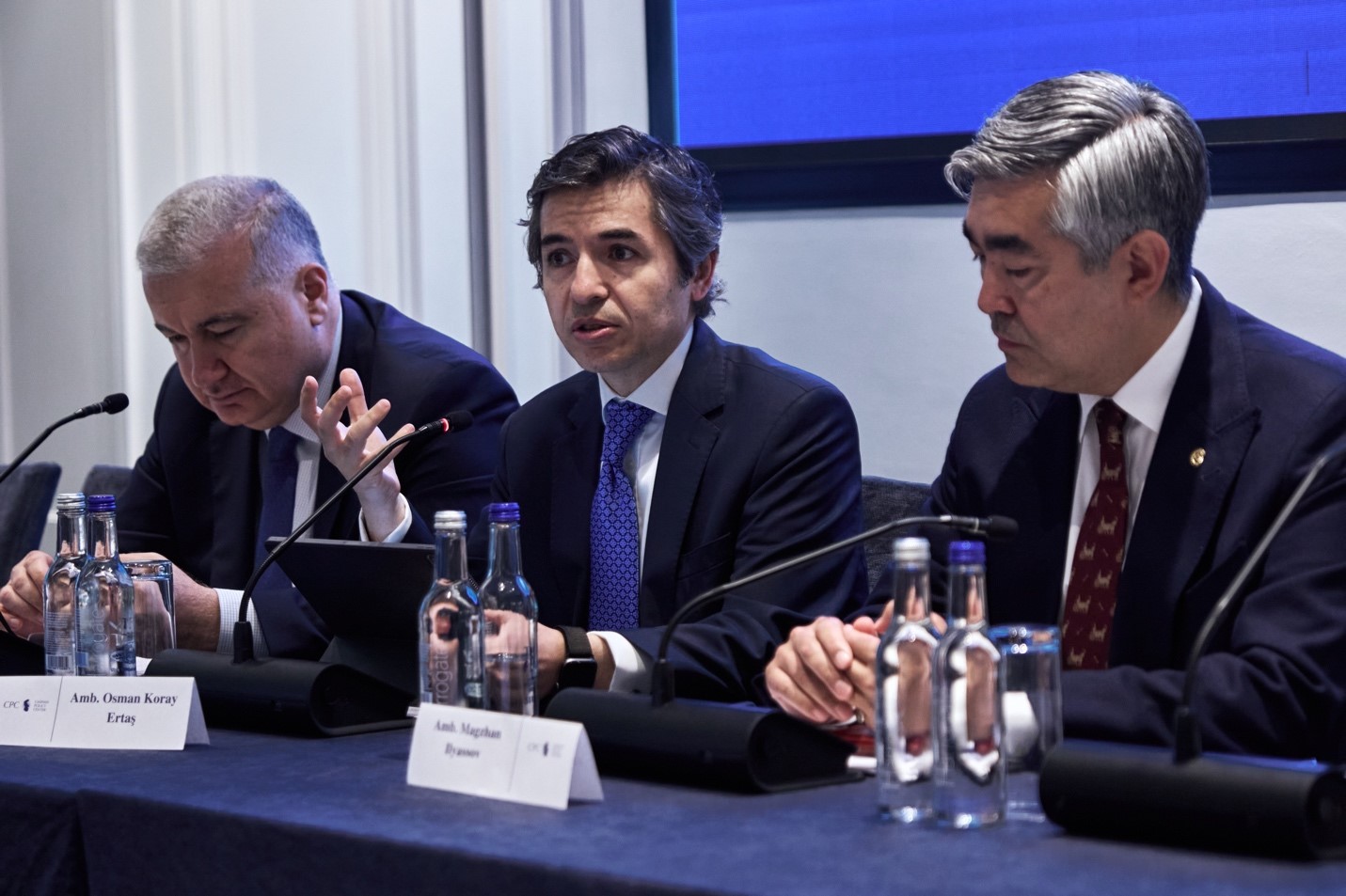
Ambassador of Türkiye to the UK Osman Koray Ertaş picked up on the strategic importance of the Middle Corridor in light of recent global supply chain disruptions, pandemics, and maritime bottlenecks. “We have witnessed what has happened with the conflict in Yemen and now the difficulties faced in the Strait of Hormuz. All these developments are underlining the growing importance of this corridor,” he emphasized.
“For the last two years, the freight volumes along the corridor have indeed tripled. With the right investments and coordination, these figures could increase tenfold by 2030. This is a real gamechanger in the end. The Middle Corridor is no longer an alternative route; it is now a strategic reality and strategic necessity,” Ambassador Ertaş added.
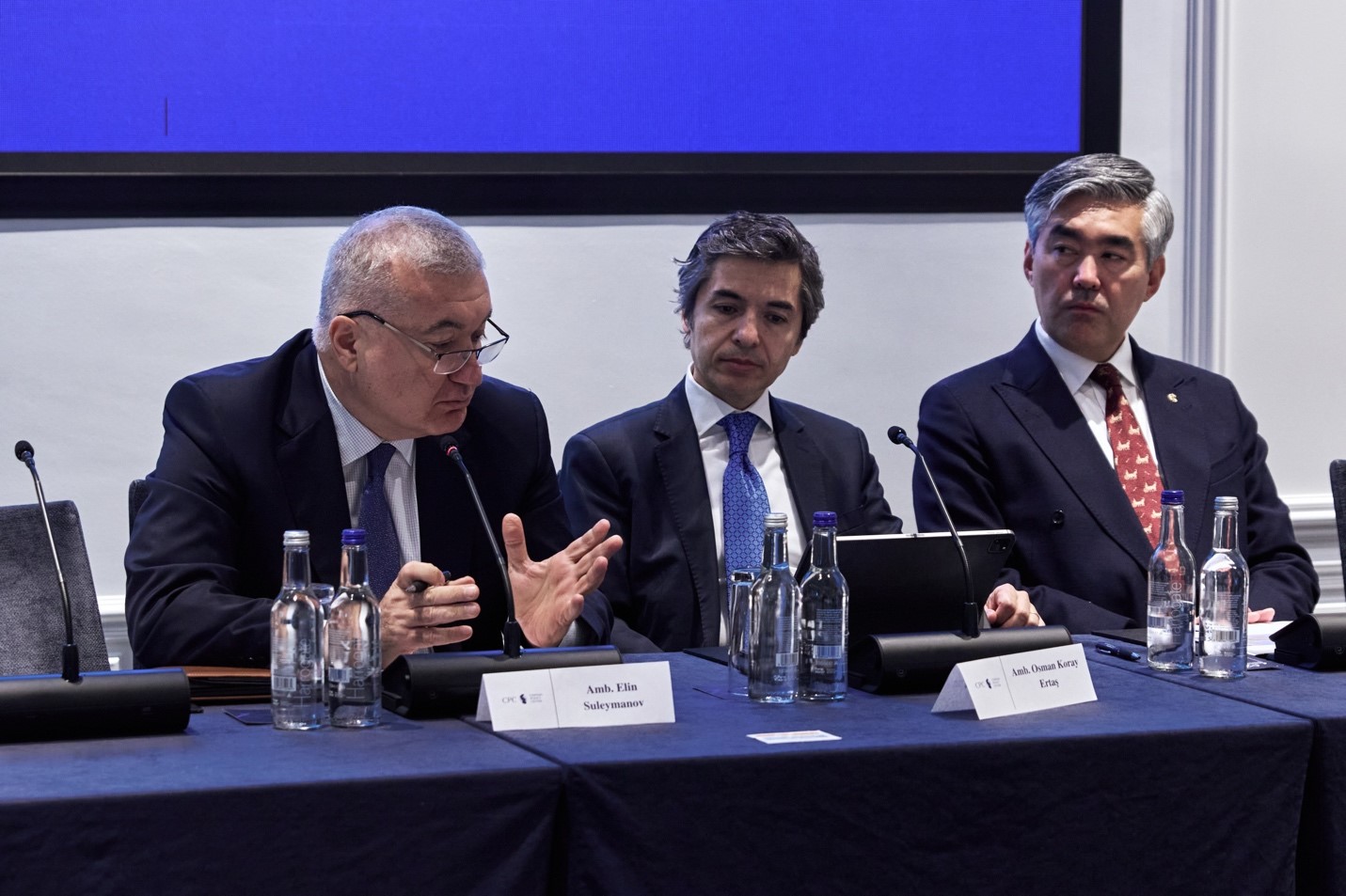
Ambassador of Azerbaijan to the UK Elin Suleymanov echoed the comments made by his colleagues, arguing that the crises underscored the necessity for regional connectivity. He specifically mentioned the conflict between Israel and Iran, and how the entire air traffic of the region was channeled solely through the Middle Corridor.
Ambassador Suleymanov commended the trajectory of the development of regional integration, arguing that initiatives such as the Middle Corridor are “organic to the region, with the connectivity between Azerbaijan and Central Asia being so important because it opens so many doors for opportunity.”
Commenting on Azerbaijan’s COP29 Presidency, Suleymanov noted that Azerbaijan became the host for all the Caspian region, which made the event a “Caspian COP,” with an agreement reached by Azerbaijan, Kazakhstan, and Uzbekistan to build a green corridor to Europe across the Caspian Sea.
Suleymanov concluded his remarks by highlighting the importance of UK engagement in the region’s connectivity, arguing that its longtime presence has put it in a very strong position in terms of “soft power.”
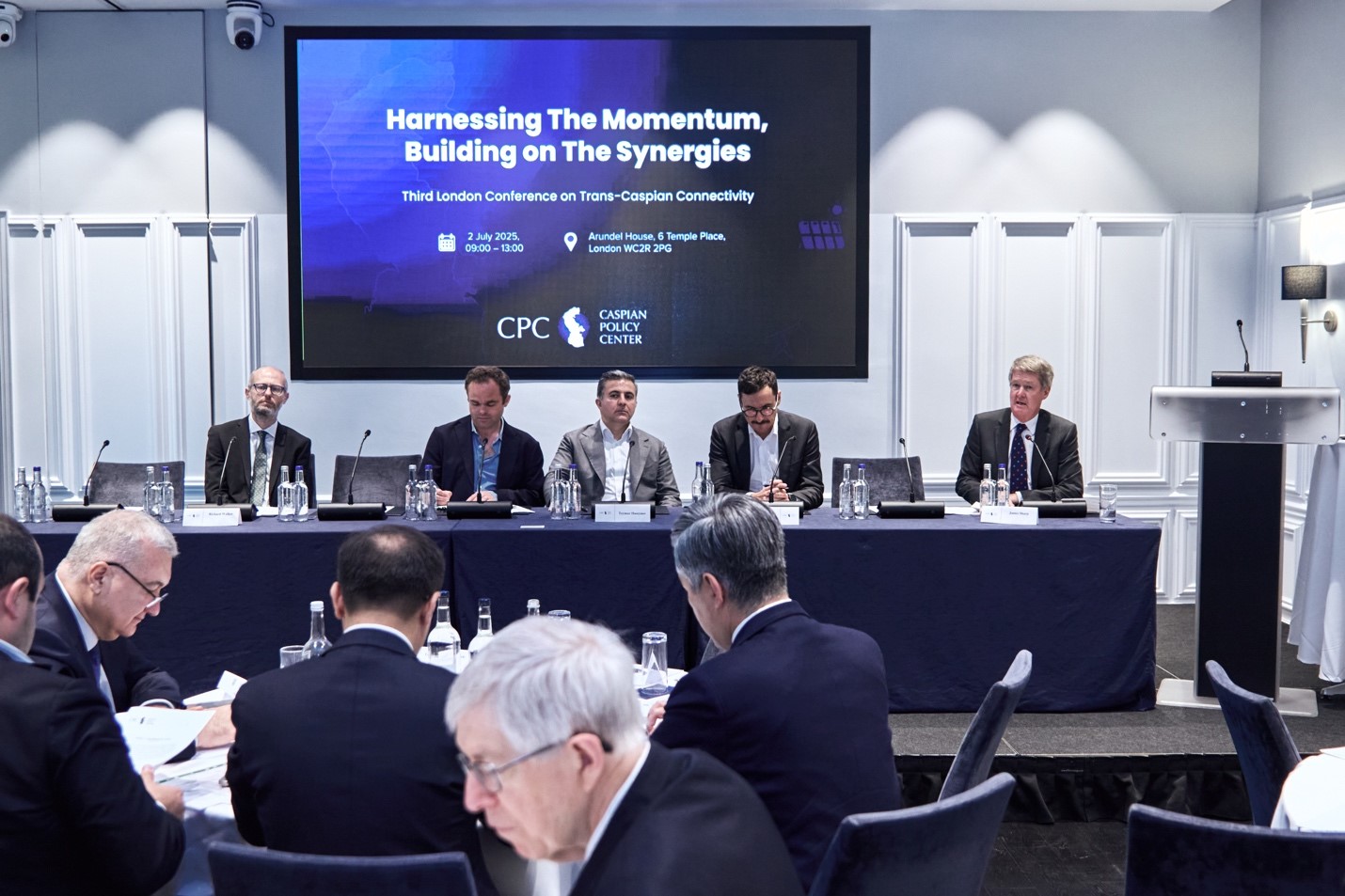
The next panel, moderated by CPC board member James Sharp, and entitled Consolidating the Corridor, focused on integrating different aspects on connectivity on both national and regional levels. Speakers Included: Grigory Savva, Associate Director and Regional Head for Central Asia at the European Bank for Reconstruction and Development’s (EBRD) Sustainable Infrastructure Group; Teymur Huseynov, Group Strategy Director at PASHA LLC Holding; Ben Godwin, Partner at PRISM Strategic Intelligence; and Richard Walker, Professor of Tectonics at University of Oxford.
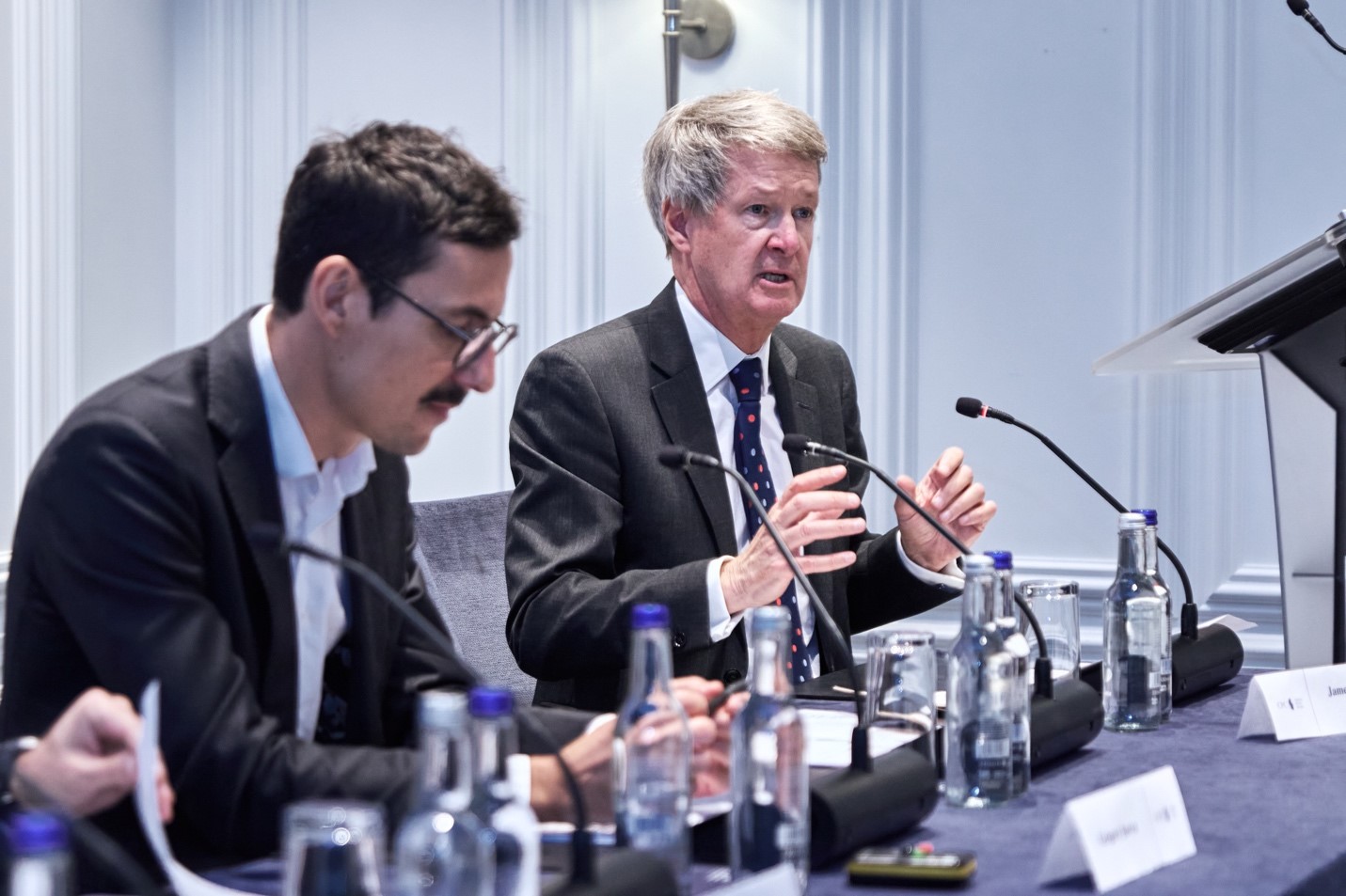
James Sharp, board member of CPC, kicked off the panel by stressing the multifaceted nature of connectivity along the Middle Corridor, including hard infrastructure, green energy, and aviation, as well as people-to-people links.
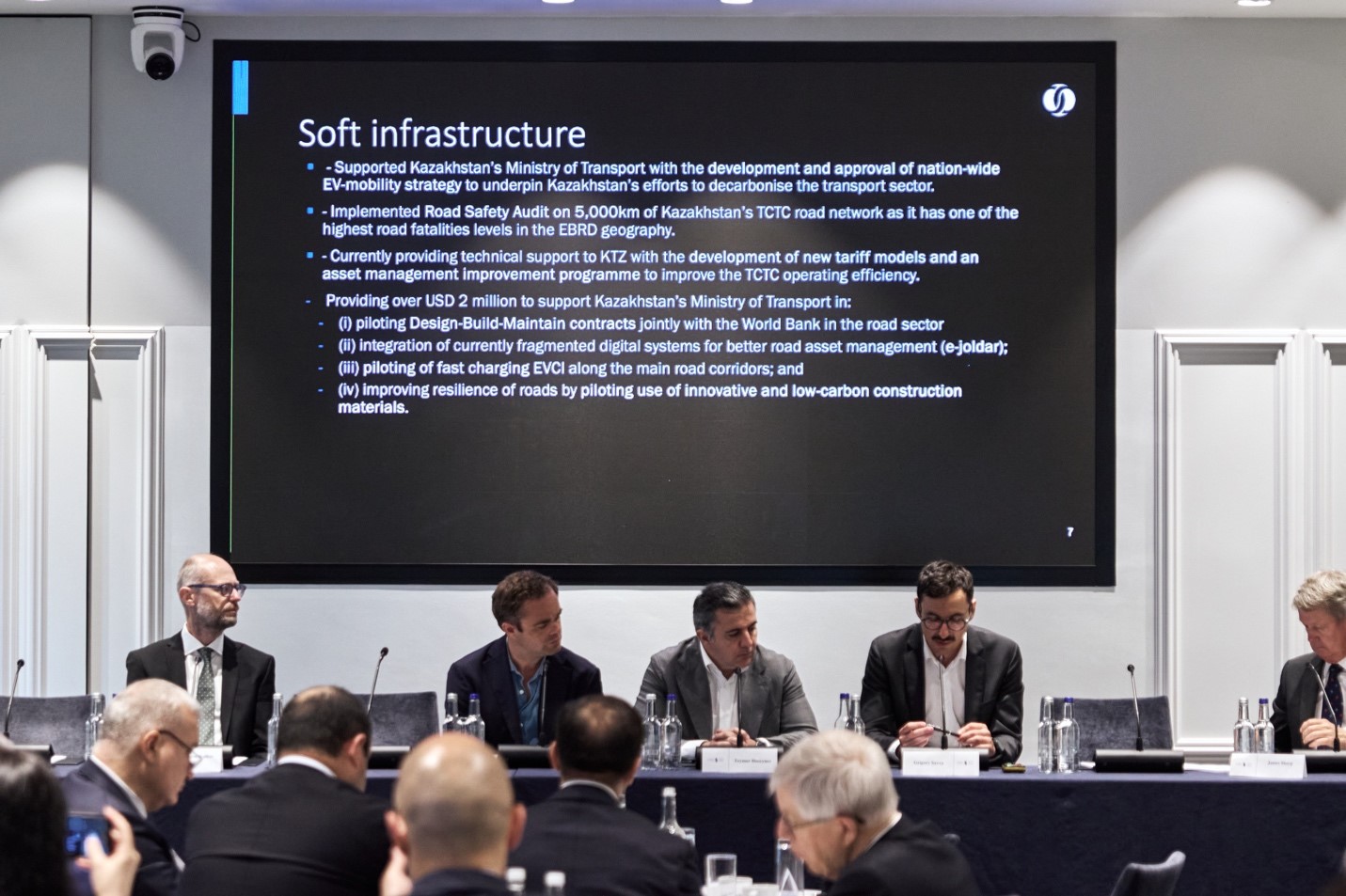
Speaking on the EBRD’s support for the Middle Corridor, Associate Director Grigory Savva said: “The war in Ukraine gave our work new relevance as shippers and various stakeholders started looking for alternatives to the Northern Corridor going through Russia.”
Drawing on the report published by EBRD in 2023 that explores sustainable transport corridors between the EU’s Trans-European Transport Network (TEN-T) and Central Asia, Savva spoke on the actual progress achieved in removing both hard and soft infrastructure bottlenecks along the route. “Since the EU-Central Asia investors conference in Brussels in January 2024, EBRD has signed a Memorandum of Understanding agreement with Kazakhstan’s Ministry of Transport for €1.5 billion,” he noted.
Savva mentioned that looking ahead, EBRD is processing a pipeline of Trans-Caspian Transport Corridor projects amounting to about €3.5 billion, of which EBRD will be able to finance €1.5 billion, including Altynkol-Zhetygen railway in Kazakhstan and two railway terminal developments in Kazakhstan and Kyrgyzstan, as well as many other projects. “Despite higher costs, there is a growing demand for an alternative route from the shippers,” Savva added.
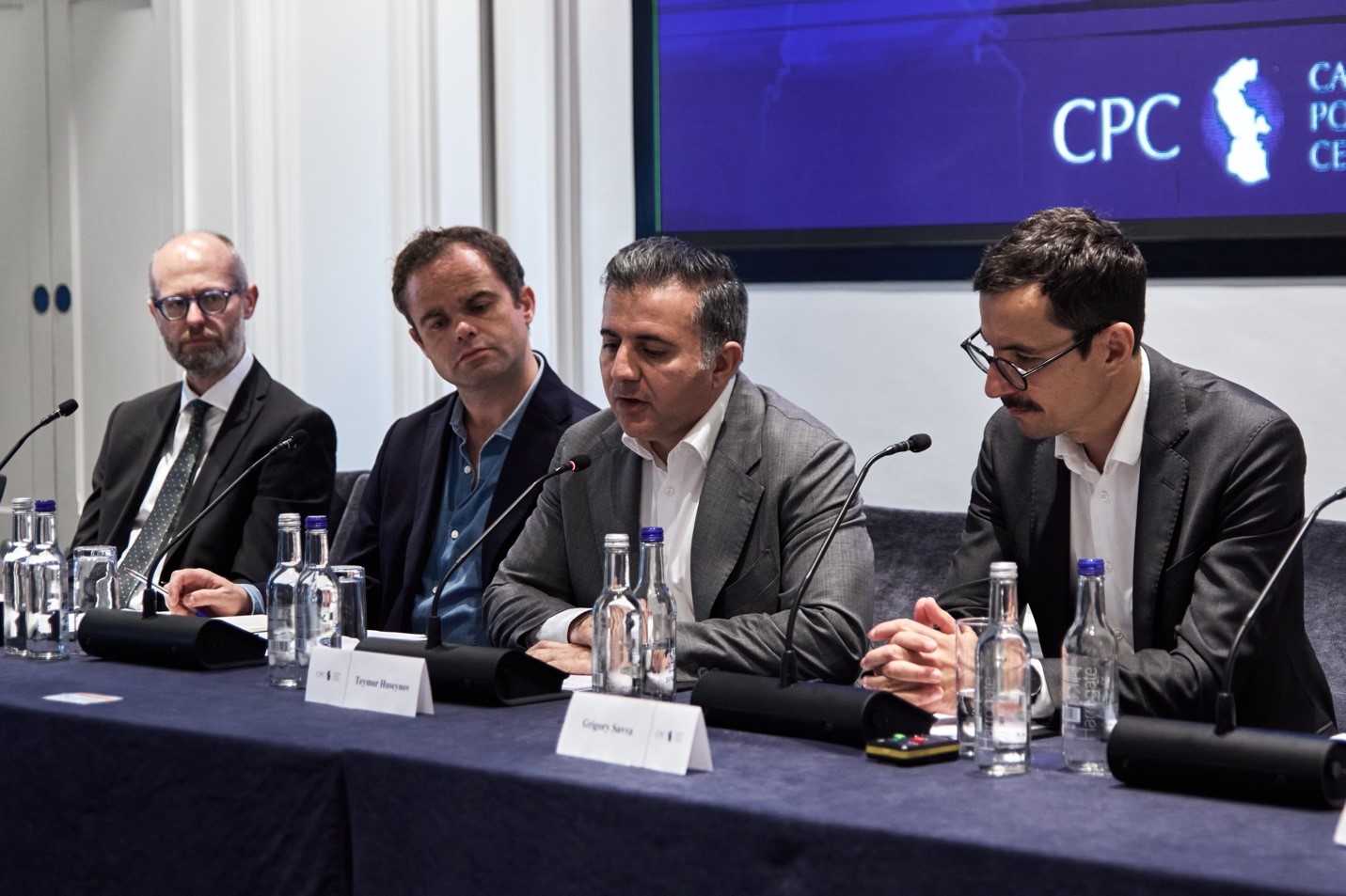
Teymur Huseynov, Group Strategy Director at PASHA LLC Holding, spoke on the growth trajectory of the Azerbaijan-based group of companies that is one of the region’s largest private actors in banking, insurance, and brokerage sectors. Huseynov noted that PASHA LLC Holding has been expanding into other areas, namely agriculture, engineering, construction, and hospitality, through which it has become present in Türkiye and Uzbekistan.
“We do realize the responsibility of the large private entities similar to us to play their role in ensuring the connectivity in the region. When it comes to connectivity, one of the key factors is financing. Through PASHA Holding’s two banks, we continue to play a significant role in terms of both financing free economic zones’ development and the development of the Alat Port in Azerbaijan,” said Huseynov.
Huseynov also mentioned PASHA Holding’s involvement in renewable energy. The group of companies has started its first solar project in the liberated territories of Azerbaijan and is looking forward to connecting with the projects across the Caspian in Kazakhstan and Uzbekistan to play a role in green energy exports to Europe.
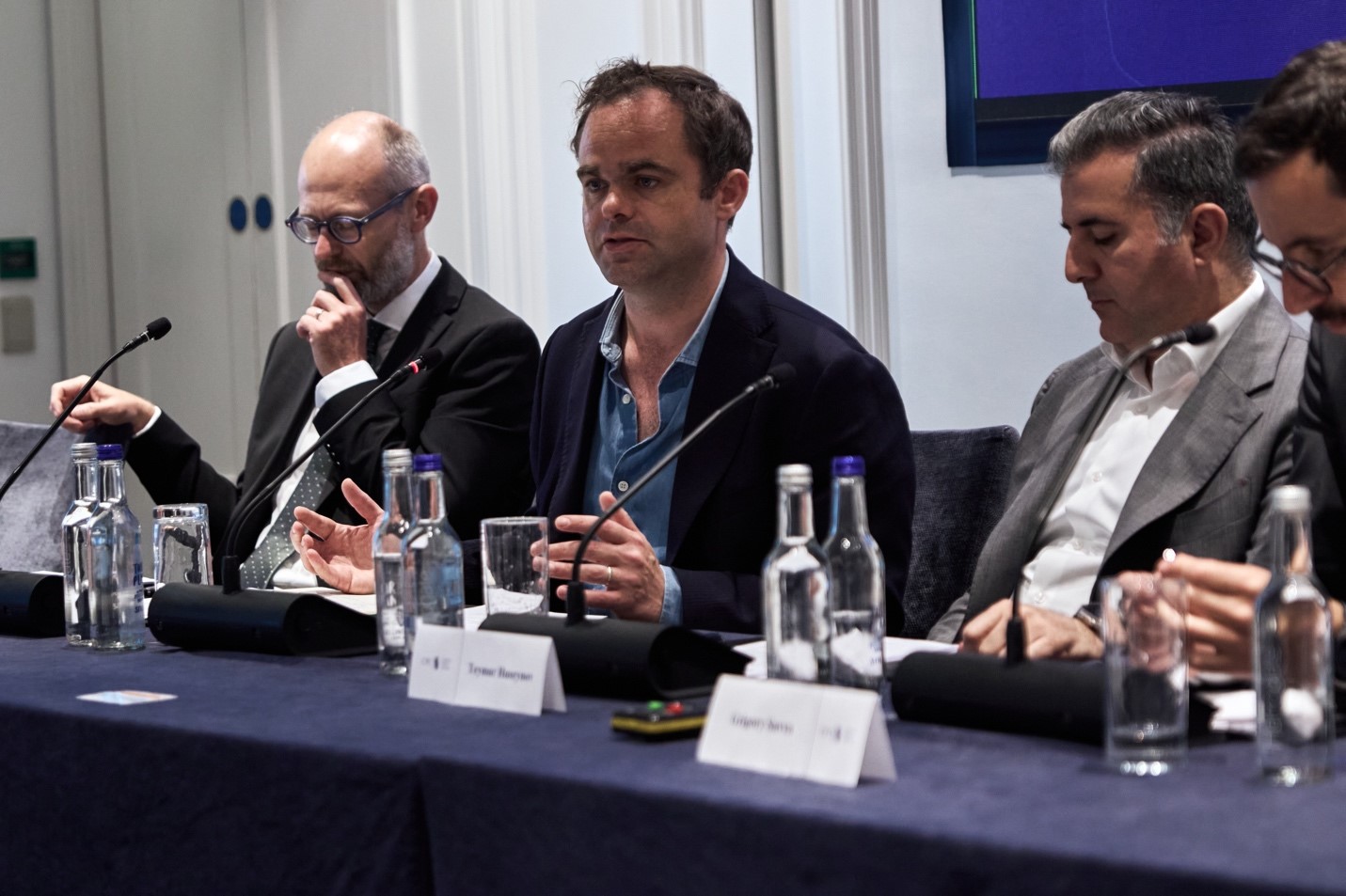
Ben Godwin, Partner at PRISM Strategic Intelligence, discussed challenges facing the Caspian region, including energy transition, competition, and resource depletion. Godwin stated that while the war in Ukraine and the resulting international sanctions have made doing business, as well as transiting goods in and out of the region, much more complicated, they have also created opportunities for regional countries to build upon.
“Most countries in the region, including Azerbaijan, Uzbekistan, Kazakhstan, and even Turkmenistan, have all taken steps to develop decarbonization agendas to ensure that investors can be comfortable doing business in these markets,” noted Godwin, arguing that one of the biggest challenges in the region is capital and the absence of capital investment.
“One of the other challenges, if we’re talking about harnessing the Middle Corridor, is constant difficulty in terms of cooperation between the countries, with the absence of a regional approach on some key areas – the most obvious one being energy corridors,” he added.
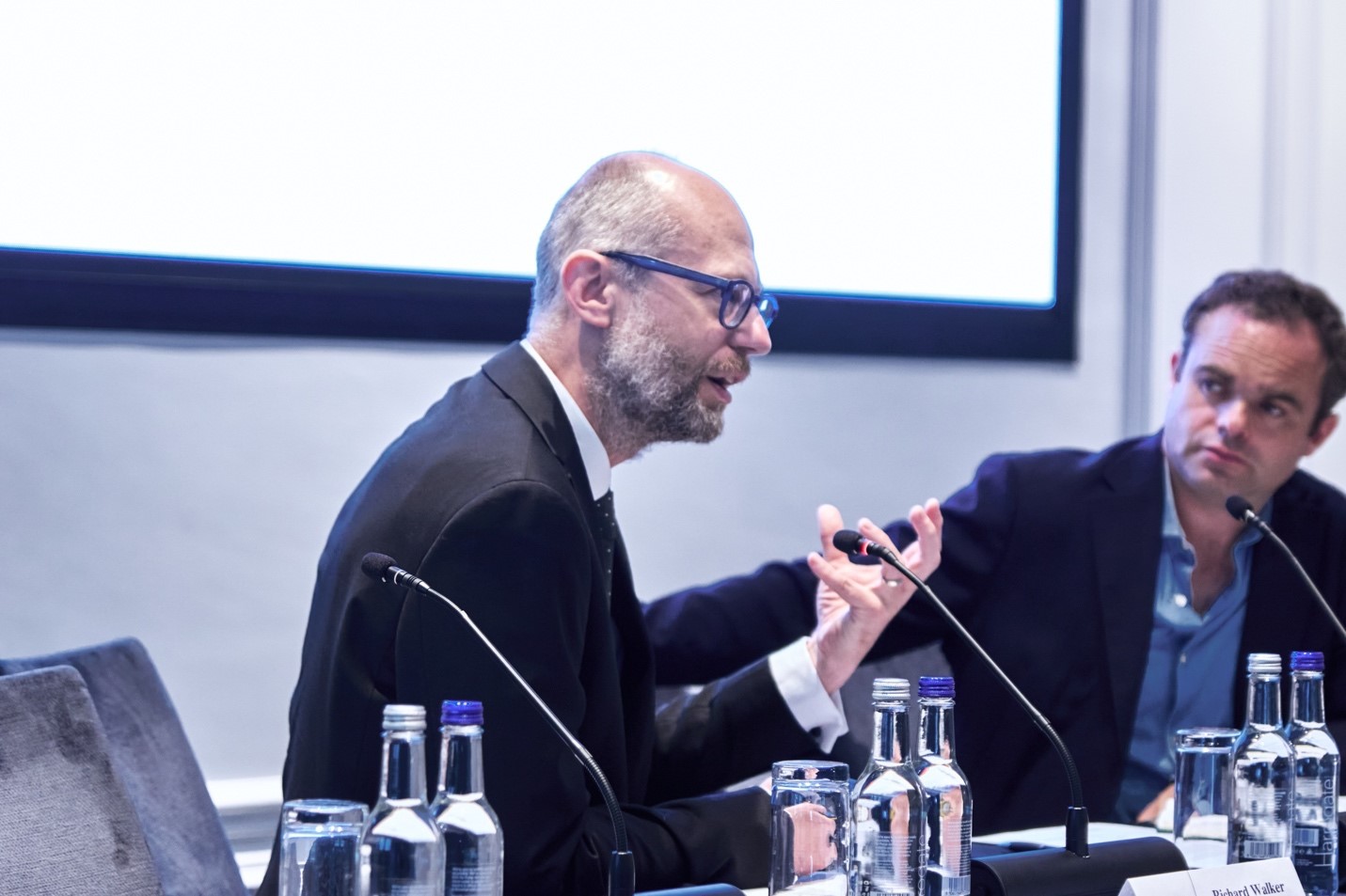
Richard Walker, Professor of Tectonics at University of Oxford, focused on the connectivity across Central Asia and the South Caucasus in light of natural hazards, particularly earthquakes, which shape the pathways for connectivity and infrastructure development.
Walker argued that natural hazards in the region have a high risk of spreading across borders and, therefore, require a more unified approach of planning in seismically active regions. “The training of early career scientists regionally is of great importance – the ability to build cohorts of researchers and scientists, such as the regional institutes in Azerbaijan and Kyrgyzstan, can help to transfer or export that knowledge into the assessment of earthquake hazard across the region,” he concluded.
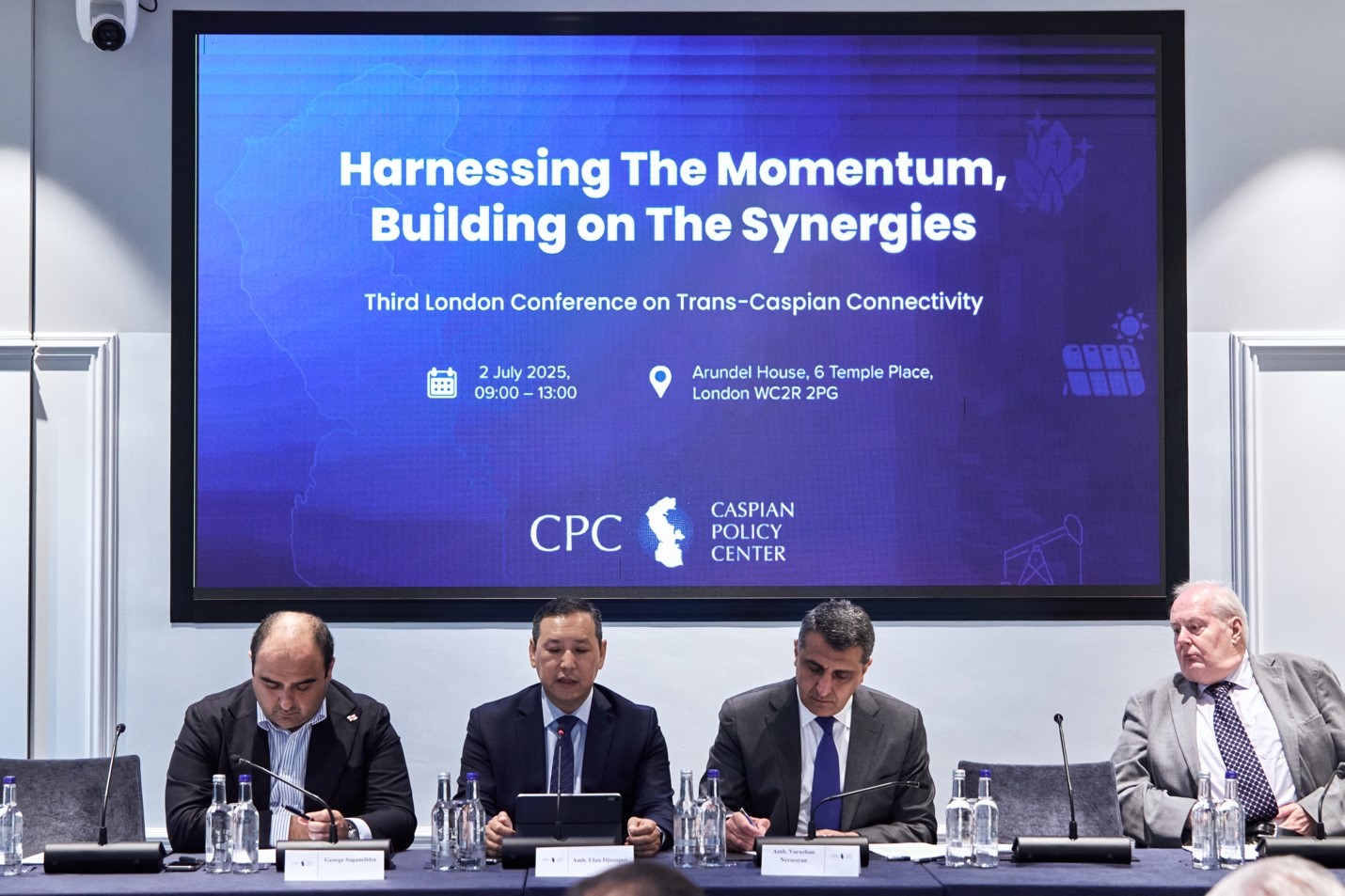
Following the first session, David Moran introduced the second ambassadorial panel that included remarks from the Ambassadors of Armenia and the Kyrgyz Republic, as well as the Chargé d’affaires of Georgia to the UK.
Ambassador of the Kyrgz Republic to the UK Ulan Djusupov stressed that his country views the development of the Trans-Caspian Corridor not only as a logistics or transit initiative, but also as a strategic driver for regional economic transformation, modernization, and sustainable growth. He spoke on the steps taken at the national level to implement transport and logistic infrastructure projects, namely the China-Kyrgzstan-Uzbekistan railway project, which is expected to become a vital link to connect the Caspian region to the Trans-Caspian route and further to Europe. He added that Kyrgyzstan is open to offer its territory for pilot projects that can demonstrate the benefits of such integration.
“Only through genuine regional cooperation, harmonization of standards, and the active involvement of all stakeholders, including governments, businesses, and the international community, we can realize the full potential of the Trans-Caspian corridor,” Ambassador Djusupov concluded.
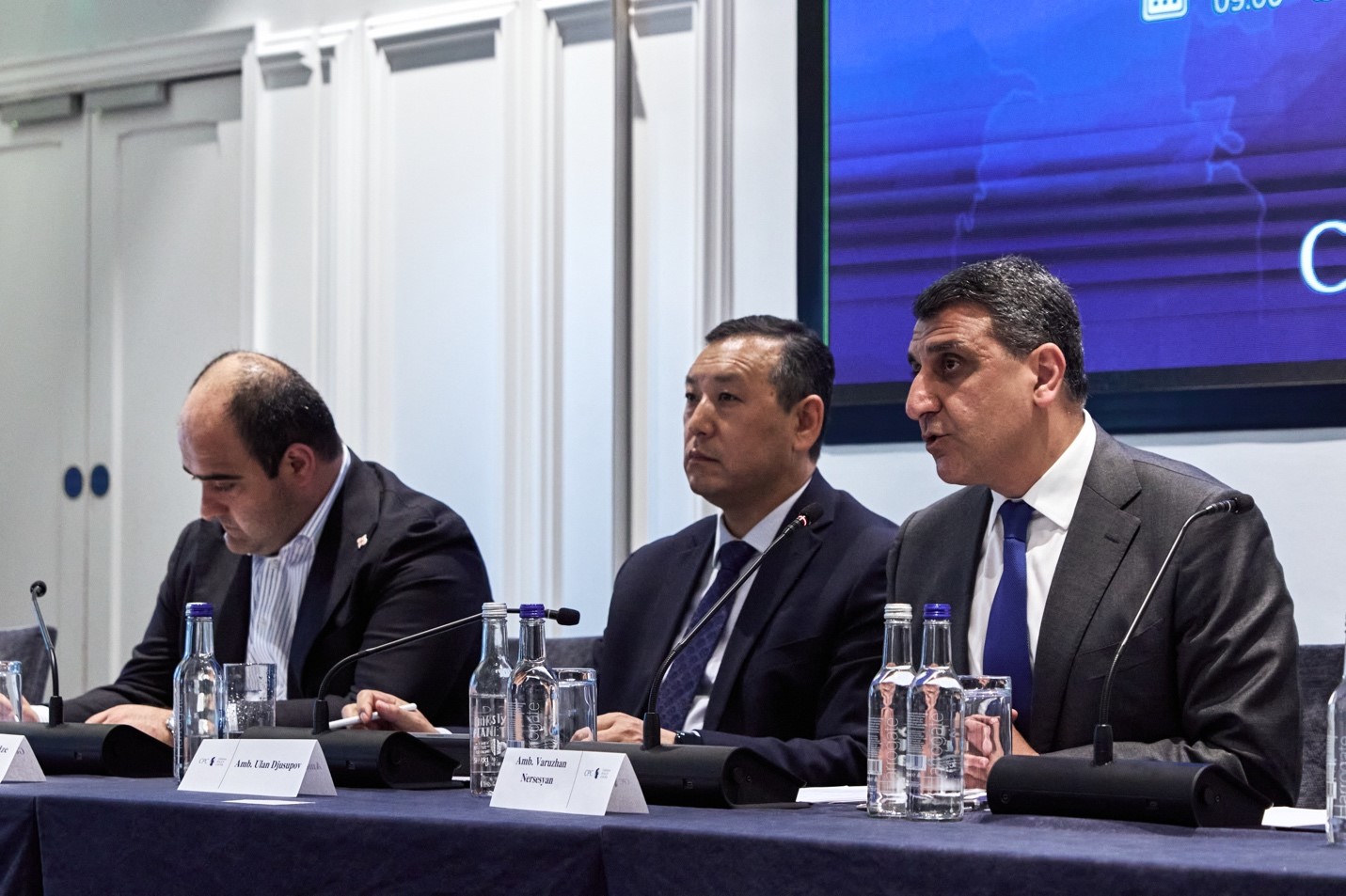
“Armenia attaches great importance to the regional projects of connectivity and the restoration of the roads and railroads, and to all projects aimed at bringing peace to the region,” said
Ambassador of Armenia to the UK Varuzhan Nersesyan.
“We see Crossroads of Peace possibly as a part of the Middle Corridor, because Armenia is ready to extend its opportunities. Even the preliminary estimates show that the routes via Armenia are going to offer 30 or 40 percent discount on the transportation costs,” he continued.
Ambassador Nersesyan also spoke about the normalization of relations between Armenia and Azerbaijan. He stated that the finalization of the peace agreement was a very important development and was overwhelmingly welcomed by the international community. “We believe that the signing of the peace agreement will be extremely important for the whole region, and that it will immensely contribute to the ongoing efforts of opening communications and connectivity in the region,” he concluded.
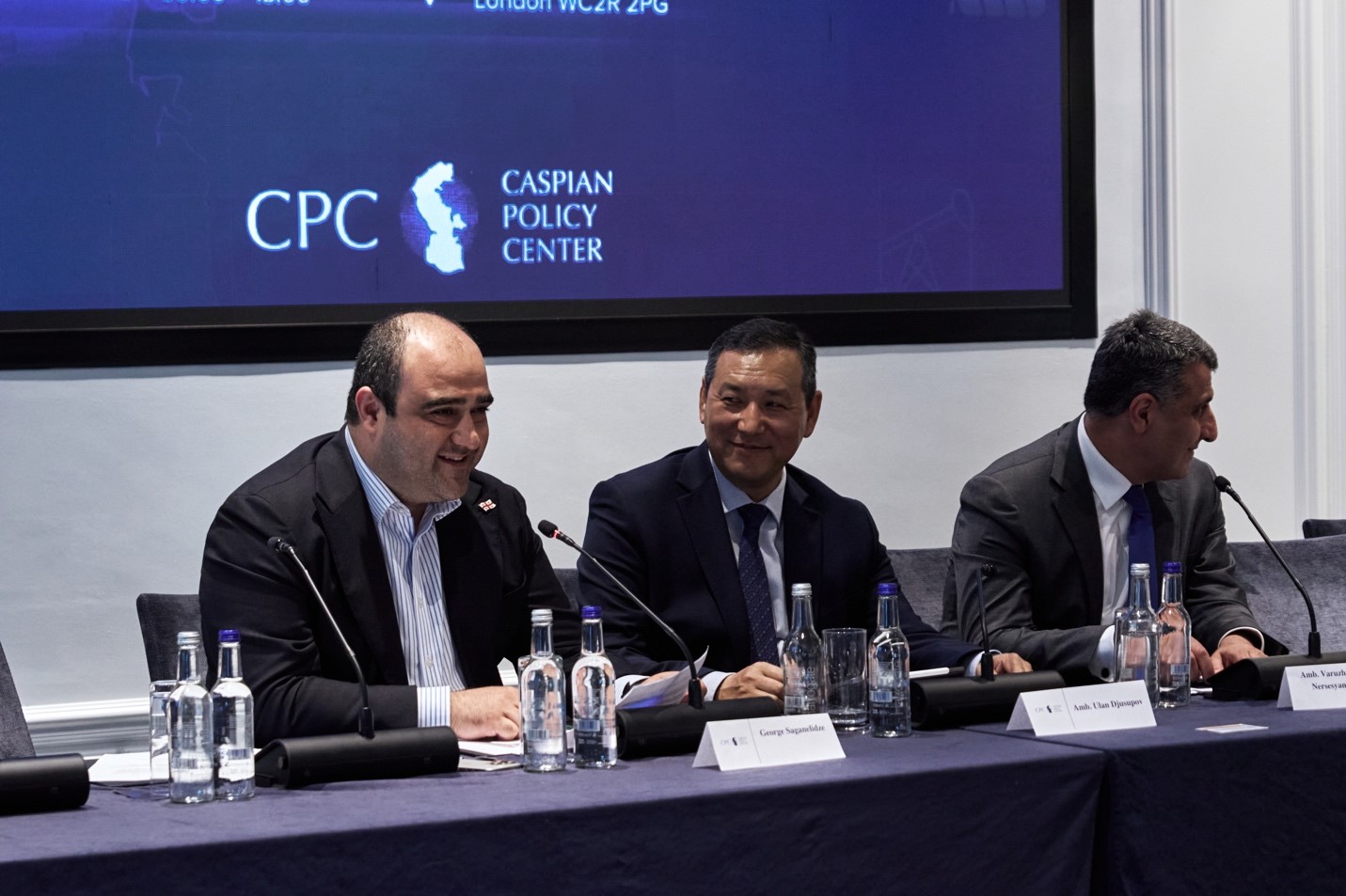
George Saganelidze, Chargé d’affaires of Georgia to the UK, also emphasized the regional importance of the Middle Corridor. He underlined that “a strong Trans-Caucasian partnership is not just a regional opportunity – it is a geostrategic asset for Europe, Central Asia, and beyond. It promotes peace through connectivity, enhances energy and digital resilience, and fosters inclusive growth across borders.”
Saganelidze spoke about the major infrastructure projects underway in Georgia to support regional connectivity, including the construction of the Black Sea Submarine Cable, modernization of the Baku-Tbilisi-Kars Railway line, and the expected launch of the Anaklia Deep Sea Port project.
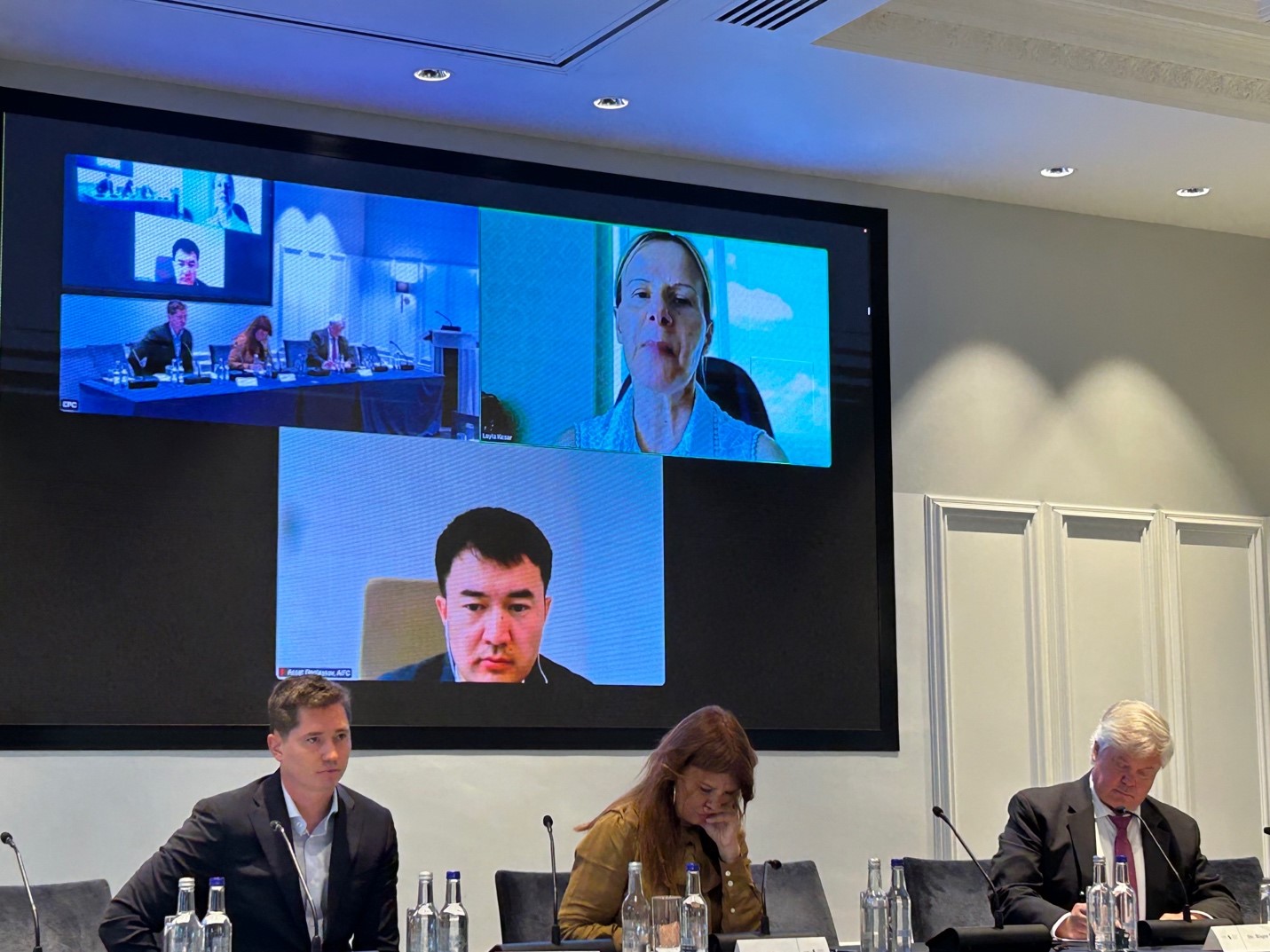
The next panel, moderated by CPC board member Roger Kangas entitled Working it Through and Making it Happen, focused on connectivity challenges in various sectors. Speakers Included: Leyla Keser, Chair of Tethys: Trans-Eurasian Gateway; Vladimir Pakhomov, Chief Commercial Officer of Atyrau Airport; Afke Schaart, Executive Vice President of International Affairs at Eutelsat/OneWeb Group; and Asset Onglassov, Chief of Products at Astana International Finance Centre (AIFC).
Leyla Keser, Chair of Tethys: Trans-Eurasian Gateway, spoke on the activities of Tethys, a private-equity fund focused on critical minerals, mining-related infrastructure, and clean energy projects across Türkiye, greater Central Asia, and the Middle Corridor.
Keser discussed infrastructure, finance, and sustainability in mining projects across the Caspian region: “We align corridor and critical minerals investments with real trade flows, resource supply, and industrial demand in the region.” She emphasized that one of the main challenges to attract investors has been the distance between the Middle Corridor routes and mining projects. To overcome this challenge, Tethys started working closely with EBRD to co-invest in critical minerals infrastructure and clean energy projects in the region.
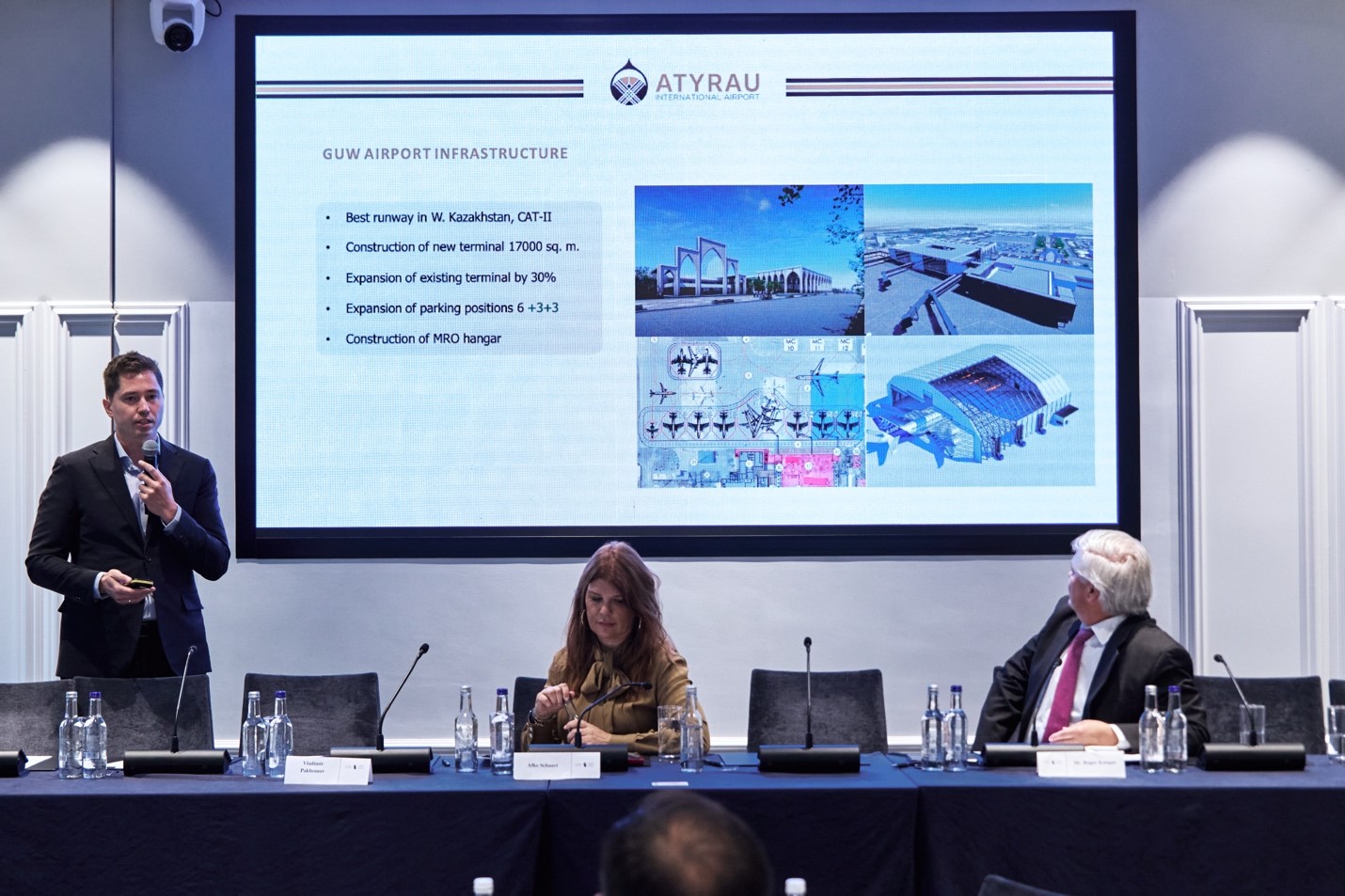
Vladimir Pakhomov, Chief Commercial Officer of Atyrau airport in Kazakhstan, presented the strategy for air connectivity in Western Kazakhstan. Specifically, Pakhomov discussed the goals to streamline the regional network of Western Kazakhstan into a single hub, which will create an efficient transfer point to Europe, Middle East, and the Caucasus; optimize Air Astana’s existing routes; attract transit traffic from Central Asia; and create opportunities for untapped growth in local market.
“To have the possibility to increase the passenger traffic and the connectivity we need to update our infrastructure, we are in the process of investing $50 million into building a new terminal that will make Atyrau the biggest airport of Western Kazakhstan,” said Pakhomov. At the moment, Atyrau airport has established direct flights with Central Asian countries, and new routes to Tbilisi, Baku, and Tashkent have also been opened. With Atyrau being the oil capital of Kazakhstan, arrival of more than 10,000 rotational workers in the oil industry from China, Italy, and Spain is expected, and this will further add to the importance of developing the airport as a regional transit hub.
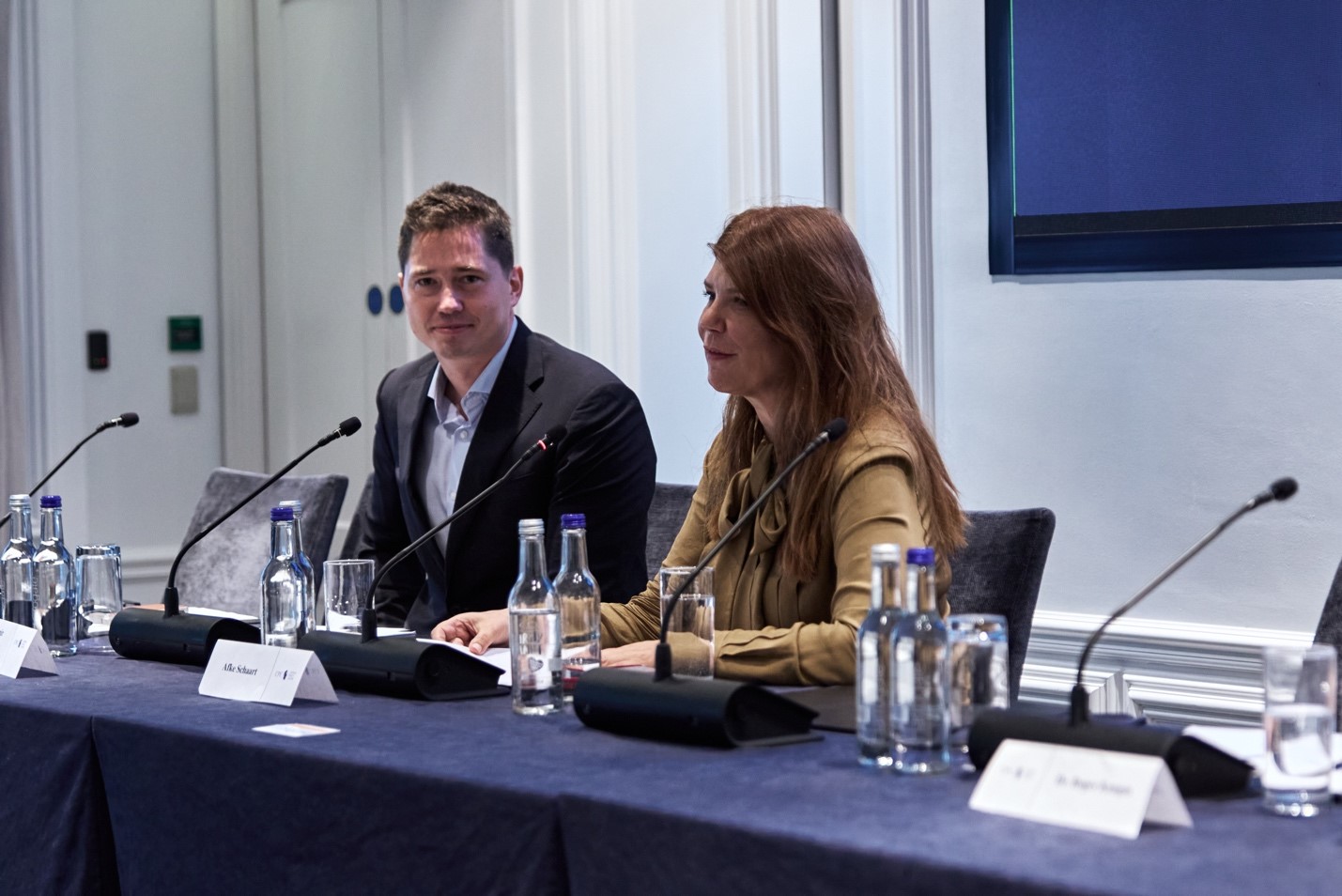
Afke Schaart, Executive Vice President of International Affairs at Eutelsat/OneWeb Group, offered insights on Eutelsat/One Web Group’s activities in space and satellite connectivity in the region. Eutelsat/One Web Group, with a 30 percent stake from the French government and 10 percent stake from the UK, offers both geostationary and LEO services, covering all of Central Asia and the Caspian Sea.
According to Schaart, the company been engaged in connecting trains in Kazakhstan, and has already successfully connected 15 trains going from Almaty to Astana. With plans to do similar projects in Uzbekistan and maritime offerings in the Caspian Sea, the company also has gained popularity after the EU’s interest in replacing Starlink with their services in Ukraine. Speaking about Eutalsat/One Web Group’s future plans in the region, Schaart noted that the company is looking forward to working with local partners and governments to enhance rail and air connectivity in the region.
“Connectivity is important for economic cooperation and improving the supply-chain resilience in the region,” said Asset Onglassov, Chief of Products at Astana International Finance Centre (AIFC). While discussing the activities of AIFC vis-à-vis transport connectivity in the region, Onglassov noted that the Centre currently has 80 companies registered that are operating in transport and logistics across the whole Caspian region, several of which are directly involved in developing the Middle Corridor. He added that transport connectivity has tremendous potential throughout Central Asia and the South Caucasus, but significant investments still need to be made in order to bring these ideas into fruition.
“At AIFC, we look at connectivity from the financial perspective, and I think AIFC can support further development of connectivity in the region by attracting investment to hard infrastructure and by helping to develop and to implement soft connectivity measures as well,” Onglassov conclude
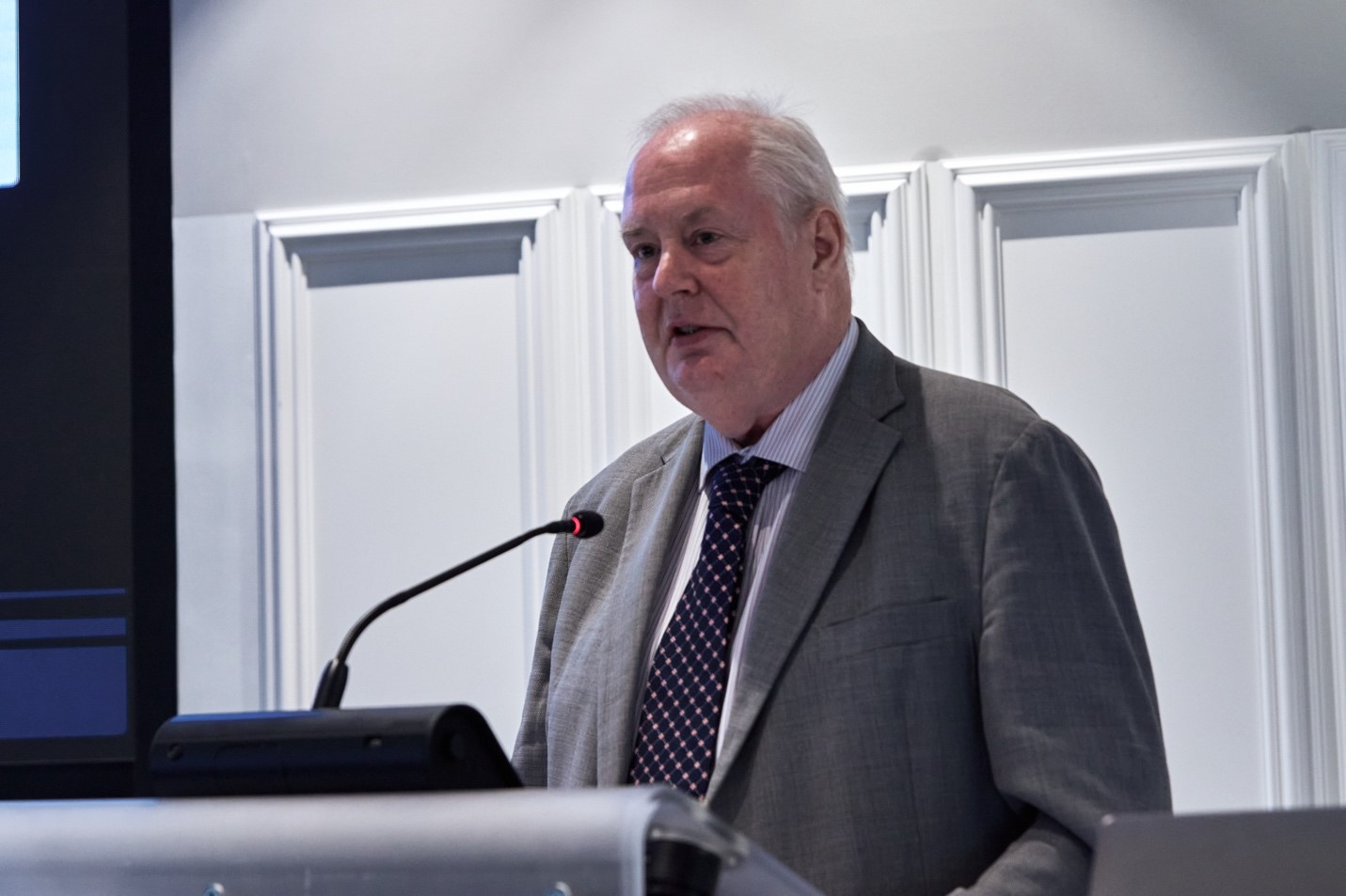
The Caspian Policy Center’s third London Conference on Caspian Connectivity concluded with closing remarks from David Moran, who underscored the importance of strategic partnerships and cooperative solutions to enhance energy and connectivity cooperation across the Caspian region, benefiting both the United States and the United Kingdom. Moran reiterated that the discussions about improving the Trans-Caspian Corridor, also known as the Middle Corridor, have become increasingly more aligned, with investments and new developments taking place at a faster rate than ever before.